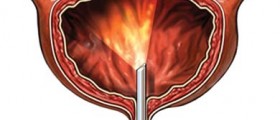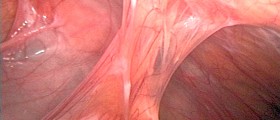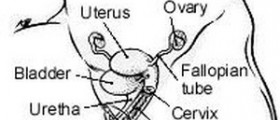I just had my total vaginal hysterectomy on march 30. I woke up from surgery feeling everything. Like there was no pain meds at all. The catheter was excruciating. The nurses were horrible and made comments about my mental health because I was screaming in pain. I am now 11 days post op and have severe left side rectal pain. Sometimes I will just stand up and it feels like everything's tearing apart. It hurts so bad. What could this be? Doctors office keeps telling me it's normal and to deal with it. The pain meds they put me on don't even help. This is a searing tearing pain in my bowels. Happens whenI try to go to the bathroom too . I am tired of hurting so much. What can I do???
Loading...
Hi Melissa
Sorry to know about your condition. Here is some information for you -
Immediately after your surgery, you may have a catheter(a tube) that drains urine from the bladder into a bag, anda pack in the vagina to prevent bleeding. Your doctor will specify how long these will need to stay in place, usually between 8 to 24 hours.
Pain/Discomfort following surgery
You may experience some pain or discomfort in the groin, vagina and lower abdomen after surgery. If you have hada sacrospinous (vaginal vault or uterine) suspension you may also experience a sharp or aching pain deep in your buttock(s). Most pain or discomfort settles within a week or two but it can sometimes be present for several weeks.
Whilst in hospital you will be prescribed regular pain reliefto keep you comfortable. On discharge from hospital, painkillers will be prescribed though often “over the counterpainkillers” should be sufficient.
Pain relief in the early post operative period is best taken atregular intervals; don’t wait for pain to become severe before taking medication. Staying on top of any pain will help to keep you mobile and to recover more quickly. If you areexperiencing severe pain that doesn’t settle after pain killers contact your doctor.
Following surgery the risk of developing a deep vein thrombosis (clots in the veins in the legs) is increased. To minimise this risk your doctor may prescribe compression stockings and a daily blood thinning injection.
Whilst you are in bed try to do simple exercises such asmoving your ankles briskly in a circular motion, bend and straighten your legs a few times each hour. Avoid crossing your legs. You are advised to mobilise (under supervision)as soon as possible after the operation. Sometimes extra preventive measures may be advised; especially when your health status increases the risk of blood clot development, your doctor will discuss this with you if necessary.
Bladder and bowel function after surgery
After a vaginal repair you may notice that at first your urine flow is slowed and it takes longer than normal to emptyyour bladder. About 5 to 10% of women have difficulty emptying their bladder fully after surgery; a catheter may then be needed until swelling settles and the bladder returns toits normal function (usually after 1-2 weeks).
Constipation is a common problem following surgery. Before and after your surgical procedure eat plenty of fruit and fibre and drink plenty of fluid to keep your bowel motionssoft. Following surgery Stool-softeners (laxatives) are often prescribed to help prevent constipation, take these on a regular basis when you first go home. It is important toavoid excessive straining to pass a bowel motion as this can put pressure onto the stitches in the vagina. Some women experience burning or shooting pains in the rectum aftersurgery this usually settles within a few days after surgery.
Sending healing vibes :)
Loading...

















